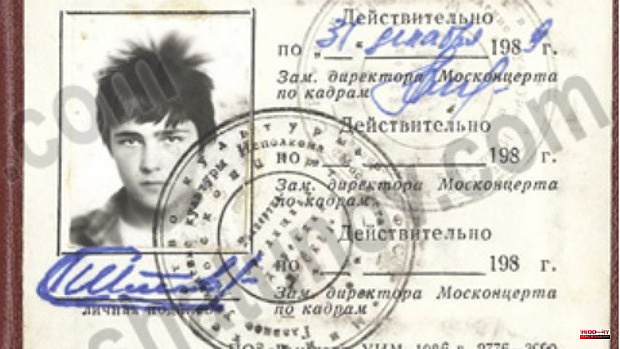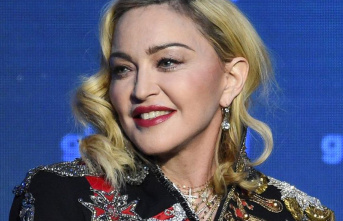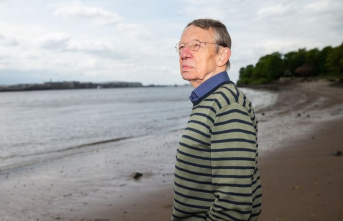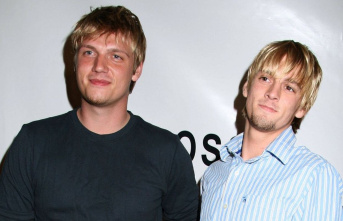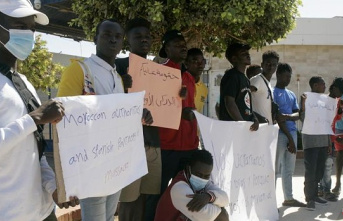Since the fall of the Soviet Union, different stories have come to light about groups and singers who tried to make music in the shadow of the prohibitions and censorship that the Soviet government imposed to stop the advance of Western cultural influence through the world. pop and rock. But there is a little-known story beyond the Urals, which shows that in the Bolshevik empire they also tried to emulate a typically European and even Yankee phenomenon: boy bands. It is about Laskovyi May, a group in the style of our mythical Parcheesi that achieved enormous popularity in the mid-eighties in Russia, and that had a life as short-lived as Perestroika itself, since it came to an end with the fall of the curtain of steel.
Laskovyi May lived with Parchís and its members also had to deal with enormous pressure to achieve fame at a very young age, but the similarities end there because the history of the Russian boy-band is much, much more. tragic.
The group was formed in the mid-1980s, when composer Sergei Kuznetsov decided to create a musical band with orphaned children from an orphanage in Orenburg, about a thousand five hundred kilometers from Moscow. After selecting several children with extremely difficult childhoods that turned them into juvenile delinquents, such as Yuri Barabash, Andrey Gurov or Anton Tokarev, Kuznetsov chose as leader of the group Yuriy Shatunov, a twelve-year-old boy from PyatkI, a small town in the Republic of Bashkortostan.
Shatunov came into the world in 1973 in an ambulance, and lived his first four years under the care of his grandparents, since his parents did not want or could not take care of him. It was in 1977 when his mother went to pick him up to take him to the city of Savelevka, where he soon proved to have a great passion for music... but also for the dissolute life. At just nine years old, he was already walking the streets playing the guitar and the harmonica, smoking, drinking, fighting with other homeless people and getting into trouble until 1984, when his existence became even more fateful when his mother died during a medical operation to try to cure him. A serious illness.
His father, who never paid any attention to him, also did not want to take responsibility for him in such dire circumstances, so little Yuriy was sent to the Akbulak orphanage in Orenburg, where he evidently had a hard time being surrounded by street kids who they had suffered the same or worse vicissitudes than he. For a couple of years, the only people who cared about him and tried to help him were Tazikenova Valentina, the director of the orphanage, and sports teacher Biksitov Akan, who got him to take up ice hockey to keep him away from bad things. influences. But in 1986, Valentina was transferred to a local school to teach as a teacher, leaving Yuriy desolate and alone in danger. So much so, that the thirteen-year-old decided to escape from the orphanage to go looking for him.
Upon arriving at the school where Valentina worked after a real odyssey, she reproached him for running away between hugs and sobs, and tried to convince him that he should return for his own good. And that was when fate wanted to give Yuryi a chance. Sergei Kuznetsov, the aforementioned composer, was there just that day looking for children to form his boy-band. And not only was he moved by Yuryi's story: she asked him if, in addition to playing instruments, she knew how to sing, and at that impromptu casting in the school gate he discovered that he had a potential talent before him.
In December 1986 Laskovyi May was formed, and after debuting live with a small concert in the courtyard of the same school where Kuznetsov met its members, the group entered the studio to record an album. The songs sounded good and hooked, but Kuznetsov betrayed his boys by selling the album for thirty rubles at a local music store next to the Orenburg railway station before catching a train to Moscow. However, there he got a most unexpected surprise: Yuriy found out that his 'manager' was leaving the city, she ran away from the orphanage again and showed up on the platform to go with him. Kuznetsov agreed to take him away, and upon arrival in the capital he managed to regularize the child's situation thanks to his contacts in the Ministry of Education.
In the middle of 1988, Kuznetsov managed to get the rest of the guys together to re-record Laskovyi May's first album, which was released in October under the title 'Белые розы' ('White Rose'). The album began to sell like hotcakes, and in January, an appearance on national television catapulted them to fame overnight.
Over the next three years, the boy-band released several commercially successful records that turned Laskovyi May's name into a Soviet pop legend who gave concerts throughout the USSR and covered the walls of millions of people with posters. Russian teenagers. But in 1992, when the federation collapsed like a house of cards, the group disbanded without explanation. That same year, two members of the band died under mysterious circumstances, and a few months later, Yuryi and his friend Michael Sukhomlinov, a keyboardist for Laskovyi May, were about to enter the former's apartment when an unknown man suddenly appeared and shot them. killing Sukhomlinov. After releasing a solo album, in 1996 Yuryi fled what he perceived as a dangerous situation and emigrated to Germany to pursue a career, but his more troublesome character reappeared and he was unable to finish his studies. What he did do was learn to produce records, and that's how he embarked on a solo career that has continued to this day.
Last Saturday, Yuryi Shatunov was preparing a new job and making tour dates when, according to his manager, he suddenly began to feel unwell. He was transferred to a hospital in the town of Rastunovo, near Moscow, but his heart stopped. He was 48 years old, and who knows if a second chance at fame lay ahead.

